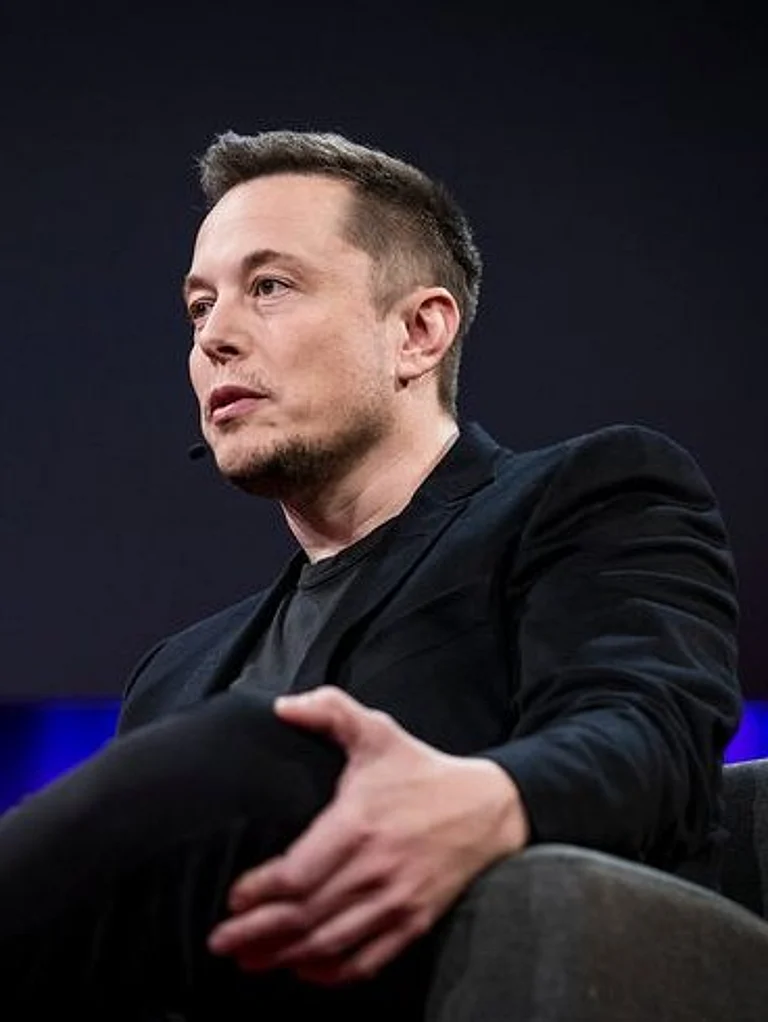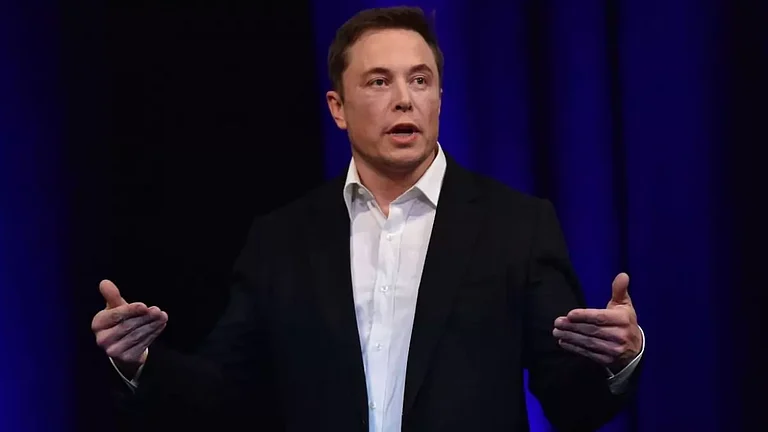Telsa CEO Elon Musk launched the prototype of the much-awaited Cybercab on October 10 at ‘We, Robots’ event held at the Warner Bros. film lot in Burbank, California. The production of the vehicle will begin in 2026 and will be priced at under $30,000, Musk announced in the event.
While unveiling the autonomous electric vehicle, Musk said autonomous cars are expected to be 10–20 times safer than human-driven cars. It could cost $0.20 per mile, compared to the $1 per mile for city buses, he added.
The robotaxi does not have a steering wheel or pedals. The doors open like butterfly wings in the upward direction, and the cybercab has a small cabin with space for two passengers.
Talking about the time saved that is spent on driving, Musk said that time can now be spent on books or watching a movie or doing work.”
The event earlier scheduled for August 8 was delayed for making changes in the vehicle.
Tesla's Troubled Track Record
Attempting to steer away from its core business of EV sales towards robot production and artificial intelligence, Tesla came up with several autonomous vehicle models. Tesla’s Cybertruck registrations in July almost matched overall EV truck registrations in the same month, suggesting strong demand for the truck, according to data from S&P Global Mobility as cited in Automotive News. Tesla’s overall vehicle sales also rose in July thanks to a boost from the Cybertruck.
However, his vehicles are marred by controversies and government scrutiny, with numerous incidents of blocked vehicles, traffic jams and fatal accidents. Earlier this year, a young motorcyclist was killed by a Tesla driver allegedly using its full self-driving (FSD) system.
In investigative documents, the US National Highway Traffic Safety Administration (NHTSA) told the Associated Press that it had found one fatality and 75 crashes while Tesla’s FSD system was being used.
Following these cases, NHTSA has opened investigations into most of the companies testing autonomous vehicles and those that offer advanced driver-assist systems in their cars as reported in The Verge. These include Tesla, Ford, Waymo, Cruise and Zoox which are being probed for alleged safety lapses.
As of now Tesla has two partially automated driving systems including FSD, which can take on many driving tasks, and Autopilot, which can keep a car in its lane and away from objects in front of it. Neither of the two systems can fully drive itself and need humans’ intervention as per the company.
In the event Musk also announced that Telsa is developing the Optimus robot, which could be available for $20,000–30,000.
































